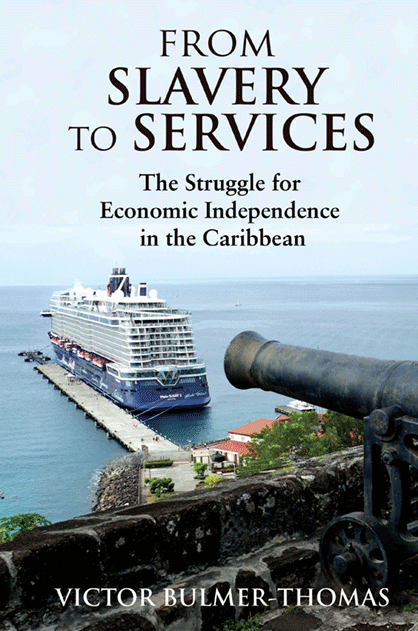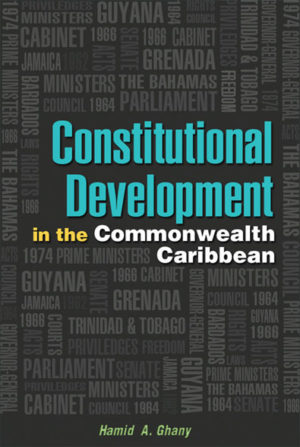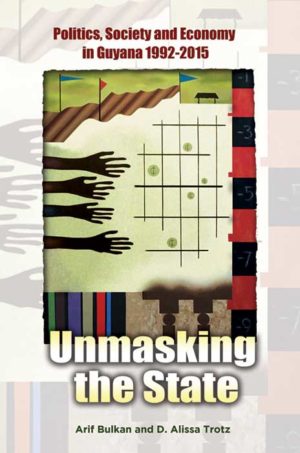Description
Expansive and ambitious yet comprehensive and coherent, From Slavery to Services: The Struggle for Economic Independence in the Caribbean is a tour de force, offering a broad sweep of the economic history of the modern Caribbean.
Building on the earlier Economic History of the Caribbean since the Napoleonic Wars (2012) with its pan-Caribbean focus, Victor Bulmer-Thomas examines the Caribbean region on a country-by-country basis. Divided into four parts covering the language territories of the region, Bulmer-Thomas deftly analyses the economic history of the countries of the Caribbean, highlighting their range and diversity as well as their commonalities and similarities all within the context of global economic history.
Spanning more than two centuries from the 1800s to the present day, this book is unmatched in its scope of the breadth of Caribbean economic history whilst remaining accessible for undergraduate and graduate students of history and economics as well as those with a general interest.
With documented historical data, illustrations, and charts, From Slavery to Services is an invaluable and indispensable introduction to the economic history of the Caribbean.
Contents
List of Figures
List of Tables
Acronyms and Abbreviations
Introduction
Part I: The Spanish-speaking Countries
1.1. From Capitalism to Socialism: 1959–63
1.2. Growth with Equity: 1964–89
1.3. The Special Period and its Aftermath
2.1. The Nineteenth-century Economy
2.2. The US Protectorate and the Trujillo Era
2.3. Structural Change and Financial Crisis
2.4. Growth without Equity
3.1. The Spanish Colony
3.2. United States Colony
3.3. Estado Libre Asociado
3.4. End of the Illusion
Part II: The French-speaking Countries
4.1. Haiti and the Core
4.2. The Export Sector
4.3 Public Finance
5.1. Agricultural Colony
5.2. The Age of Gold
5.3. Recession
6.1. Martinique
6.2. Guadeloupe
6.3. St Barthélemy
6.4. St Martin
Part III: The Dutch- and Danish-speaking Countries
7.1. From the Napoleonic Wars to Emancipation
7.2. Emancipation and Net Inward Migration
7.3. The Age of Bauxite
7.4. After Independent
8.1. Curaçao
8.2. Aruba
8.3. St Maarten
8.4. The Caribbean Netherlands
- The Danish West Indies/United States Virgin Islands
9.1. From Abolition to Emancipation
9.2. From Emancipation to Sale
9.3. Years of Neglect
9.4. Boom and Bust
Part IV: The English-speaking Countries
10.1. Economic Decline
10.2. Diversification without Growth
10.3. Growth without Equity
10.4. Secular Stagnation
11.1. Tobago: The Nineteenth Century
11.2. Trinidad: The Nineteenth Century
11.3. Trinidad and Tobago: Before Independence
11.4. Trinidad and Tobago: After Independence
12.1. From Abolition to the First World War
12.2. From the First World War to Independence
12.3. Economic Crisis
12.4. Recovery, Growth and Oil
13.1. Prosperity without Sustainability: From Settlement to Colony
13.2. Colonialism and Economic Decline
13.3. The Fall of the Economy: 1900–50
- Barbados and the Eastern Caribbean
14.1. Barbados
14.2. Antigua and Barbuda
14.3. Dominica
14.4. Grenada
14.5. St Kitts and Nevis
14.6. St Lucia
14.7. St Vincent and the Grenadines
- The Bahamas and the British Overseas Territories
15.1. Bahamas
15.2. Turks and Caicos Islands
15.3. Cayman Islands
15.4. British Virgin Islands
15.5. Montserrat
15.6. Anguilla
Bibliography
Index
About the Author
Victor Bulmer-Thomas is Emeritus Professor of Economics at the University of London and Honorary Research Fellow with the University’s Institute for the Study of the Americas. He is also a Senior Distinguished Fellow of the School of Advanced Study at London University and an Associate Fellow in the Americas Programme at Chatham House, where he was Director from 2001 to 2006; he was Director of the Institute of Latin American Studies, London University from 1992 to 1998. His publications include Empire in Retreat: The Past, Present and Future of the United States (2018), The Economic History of the Caribbean since the Napoleonic Wars (2012), The Economic History of Latin America since Independence (2003), and The Political Economy of Central America since 1920 (1987).








